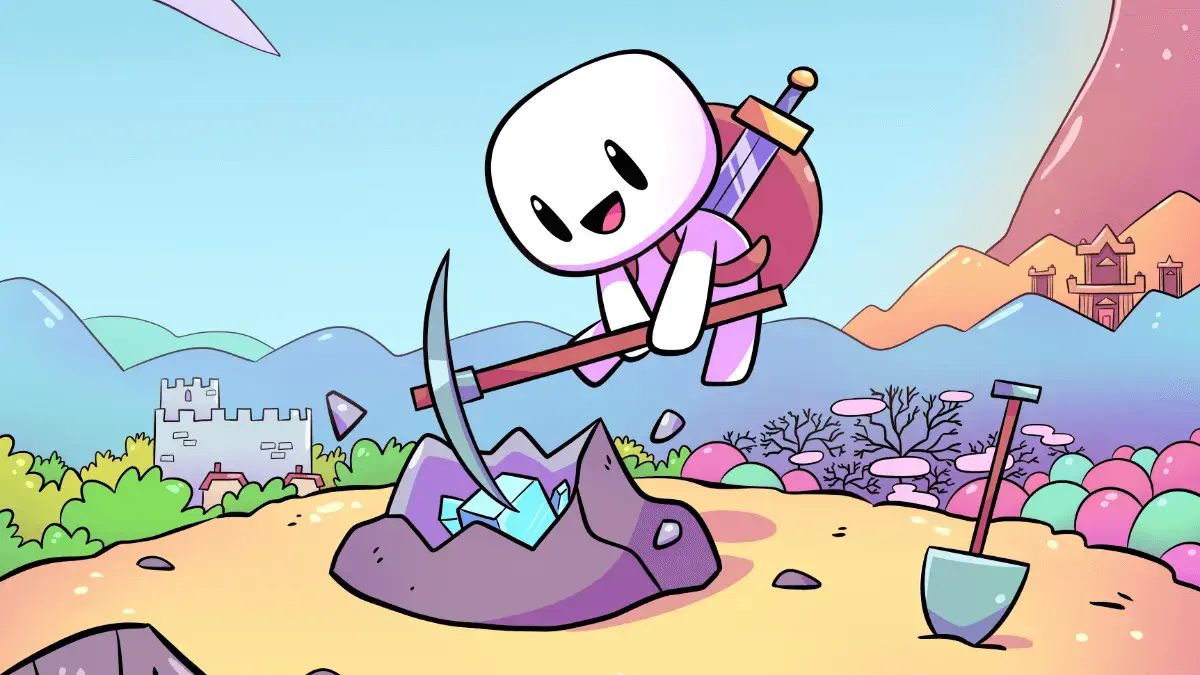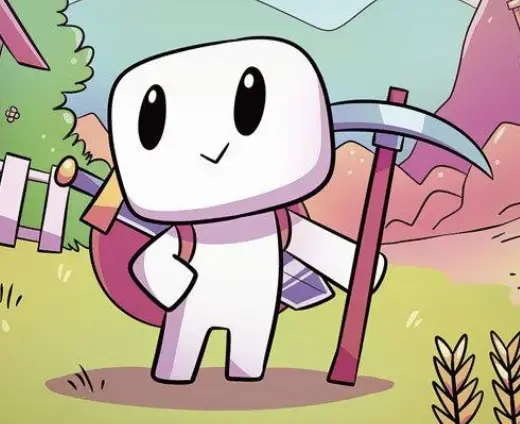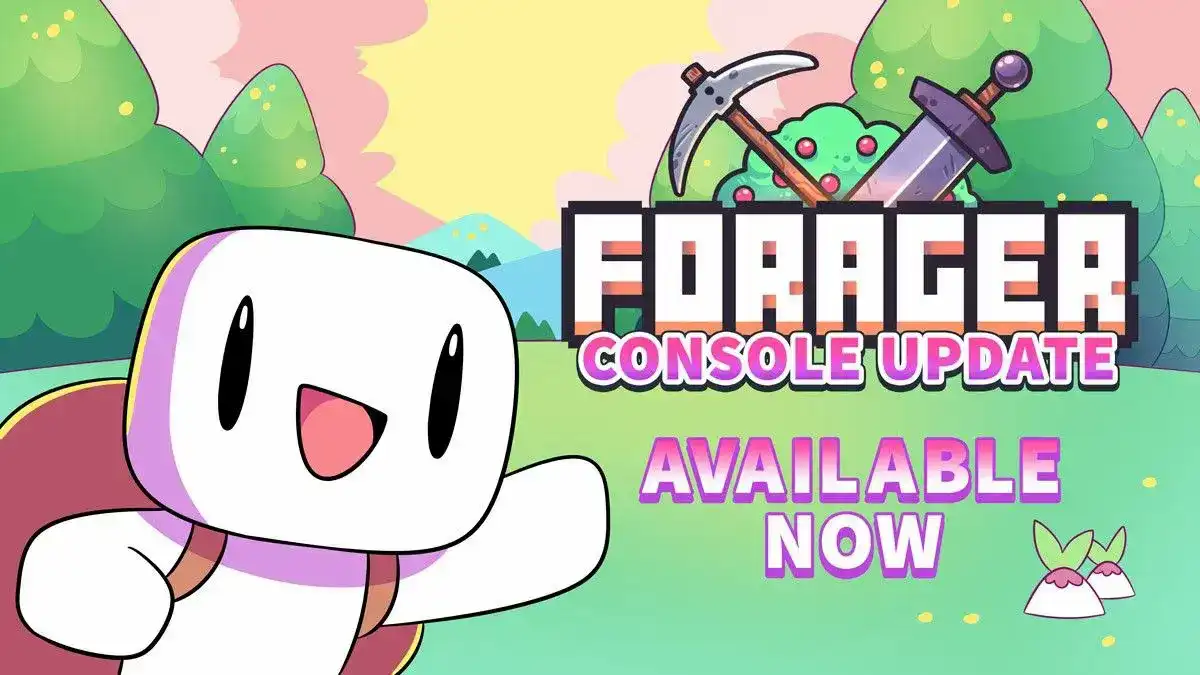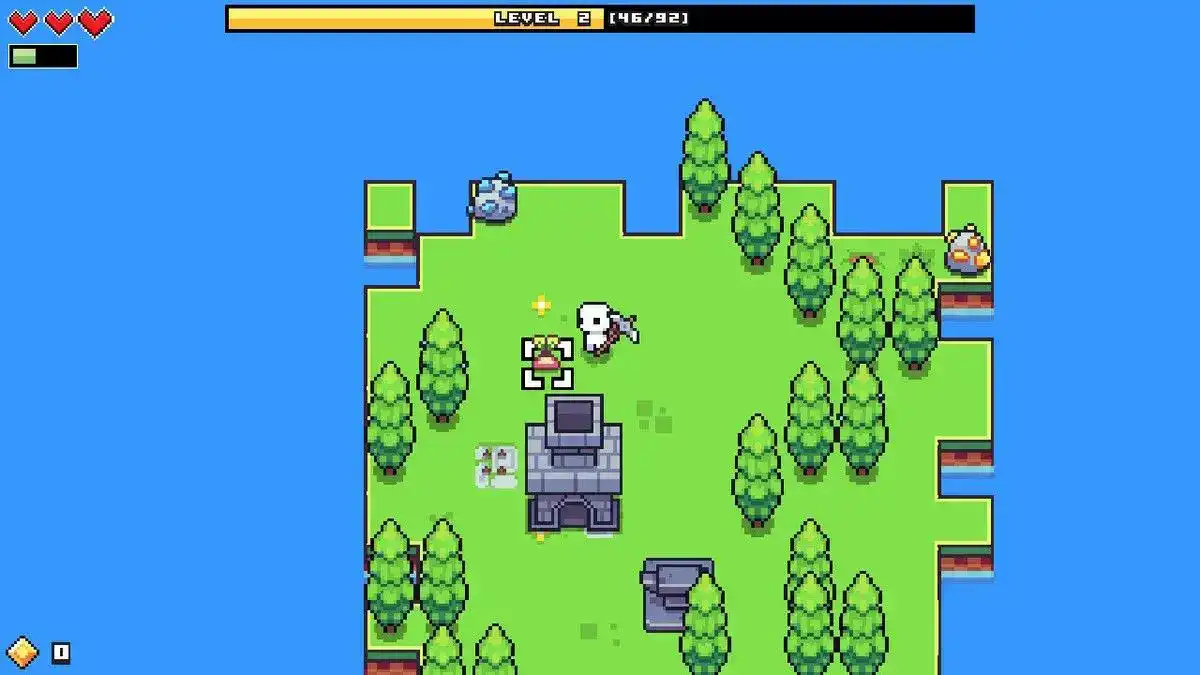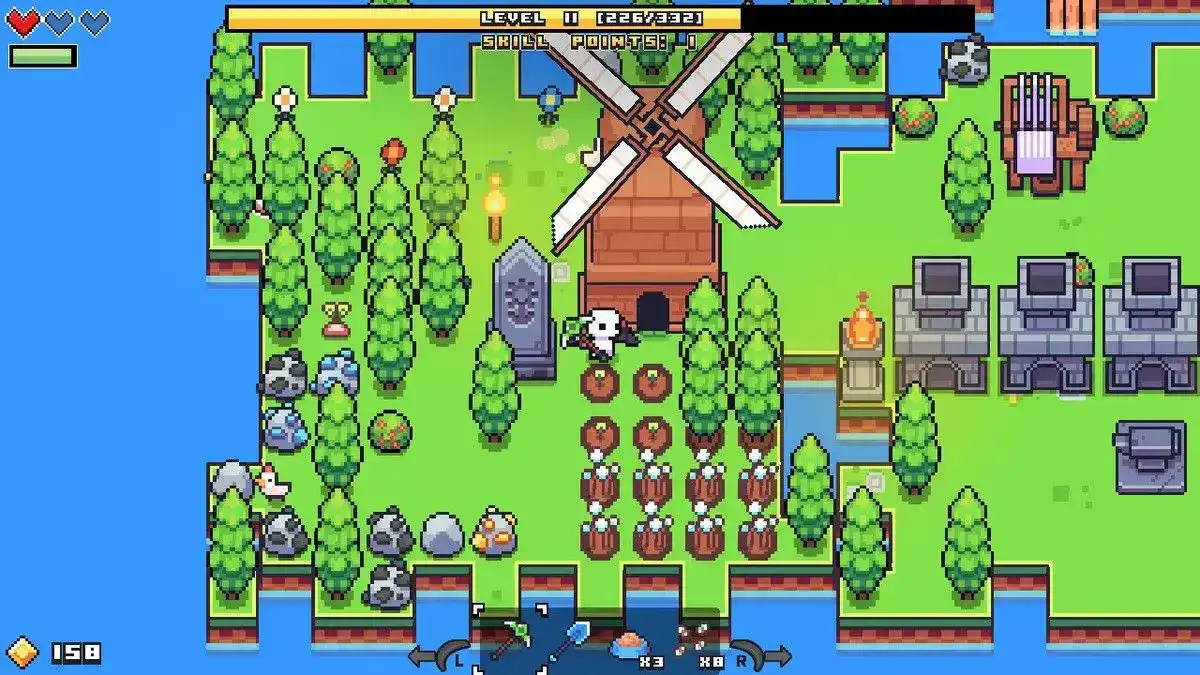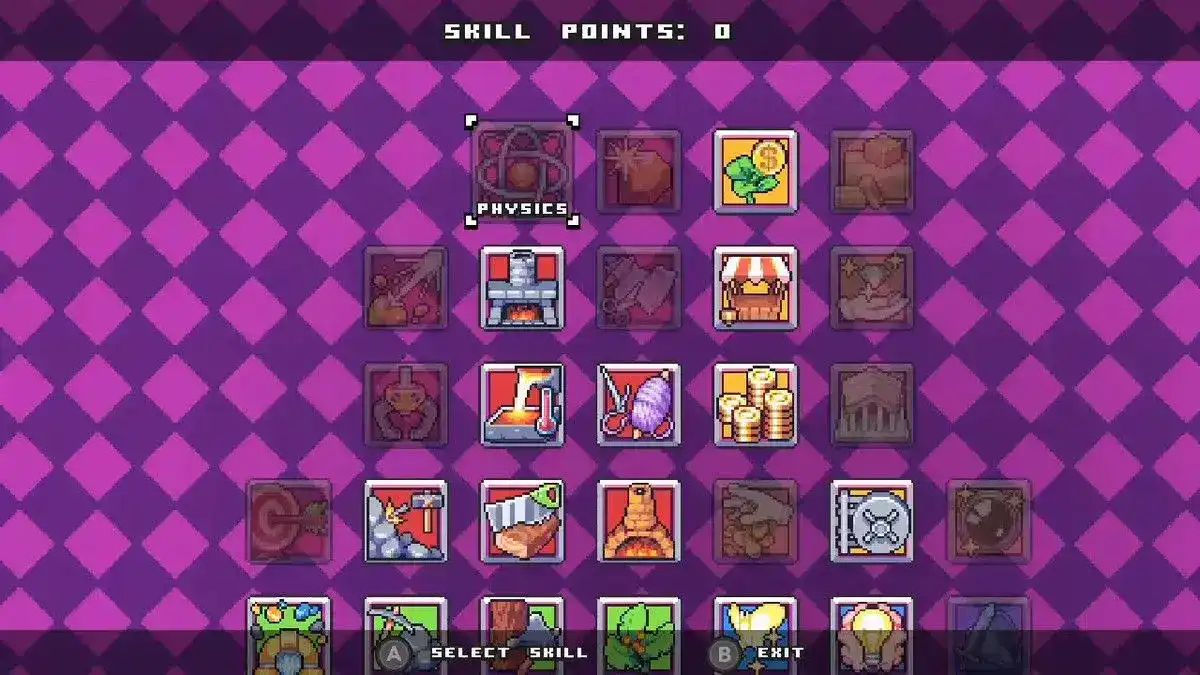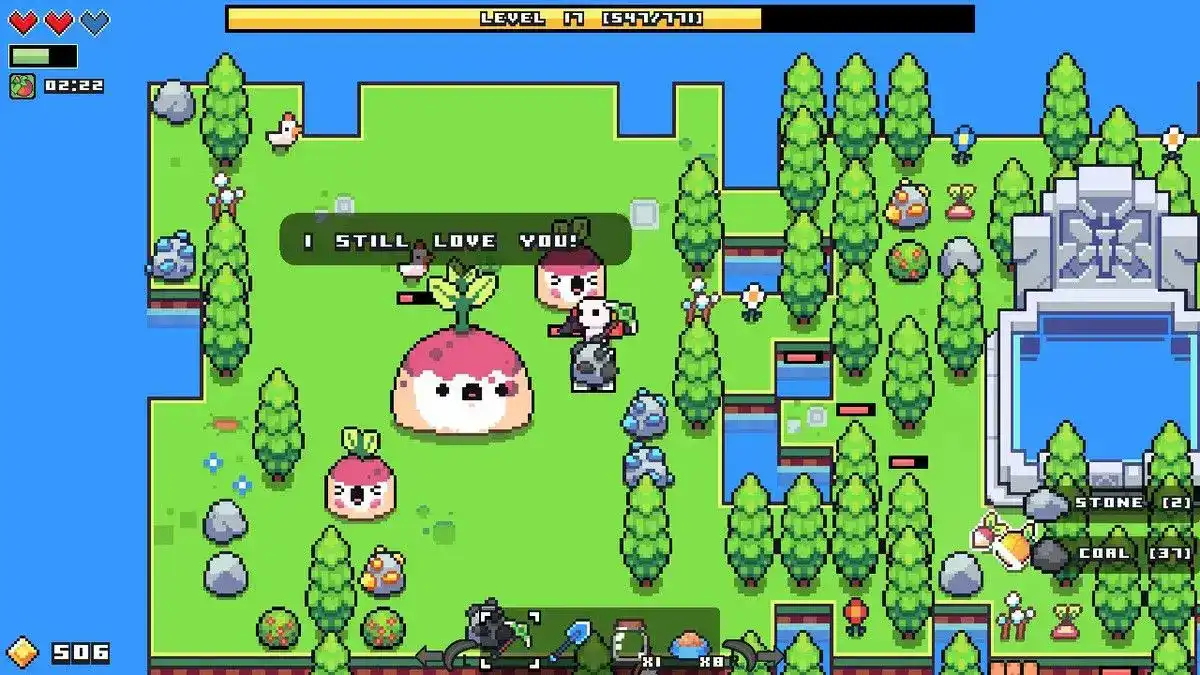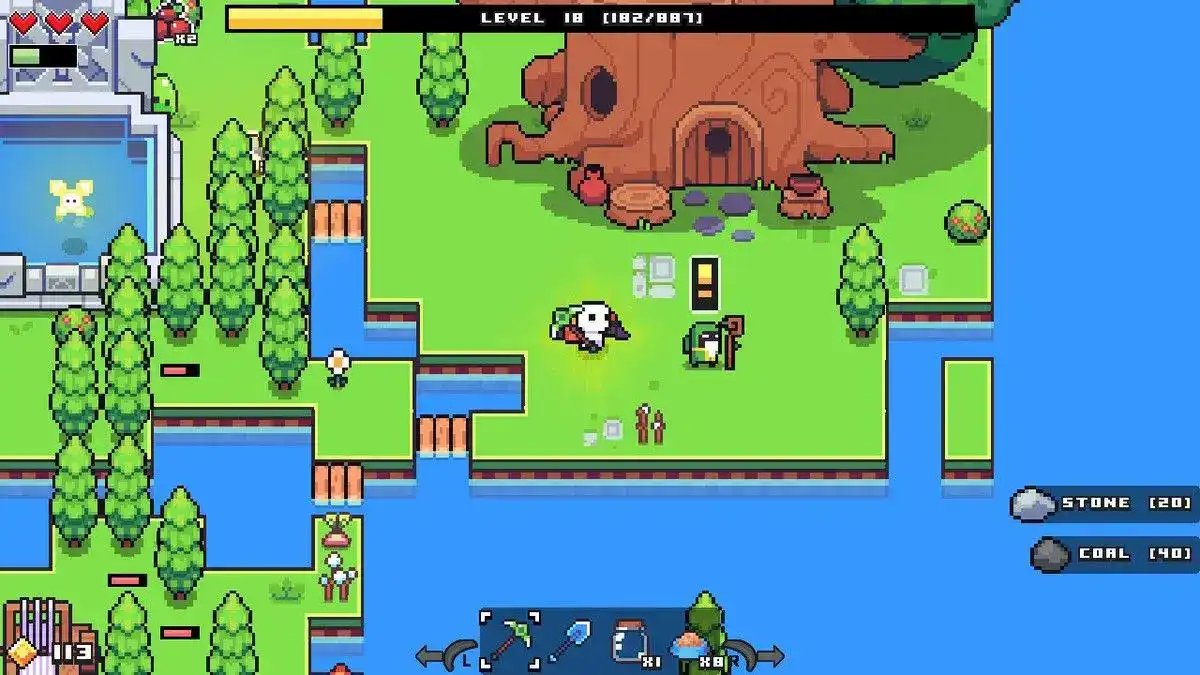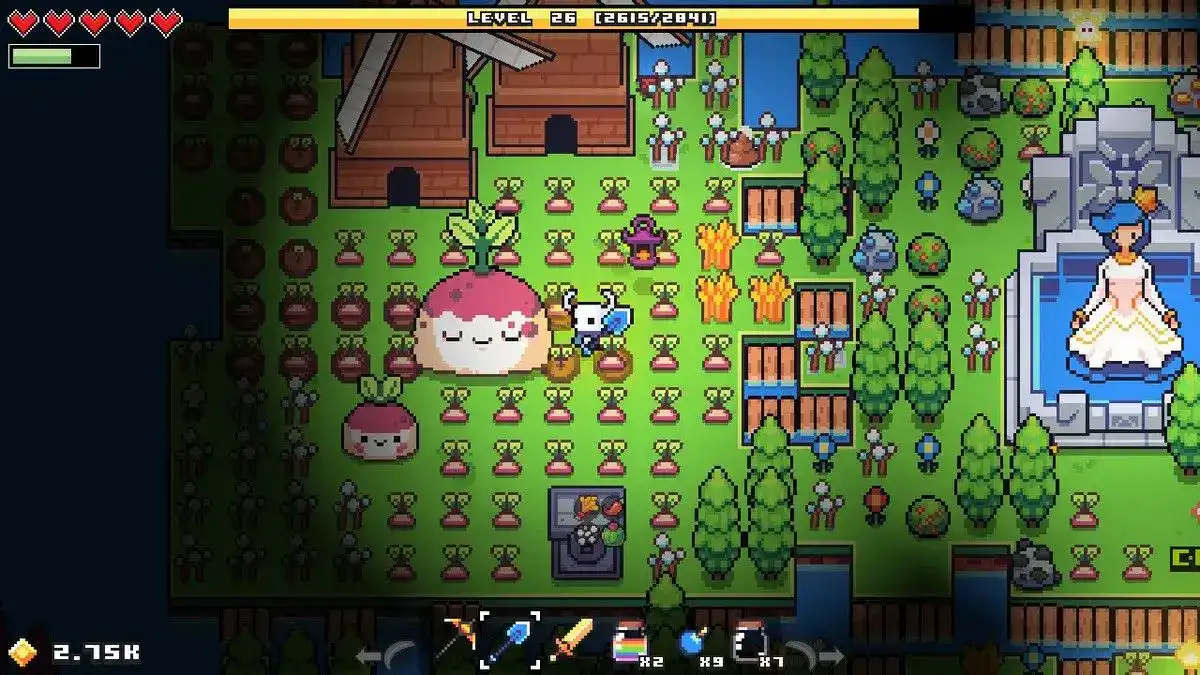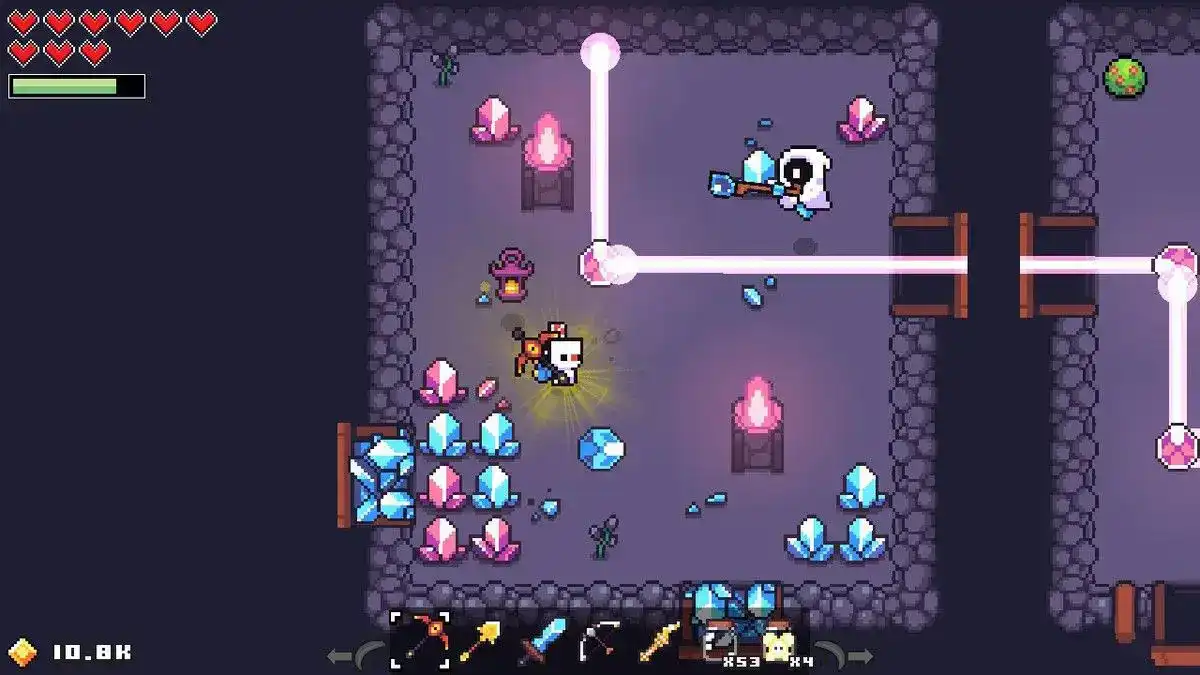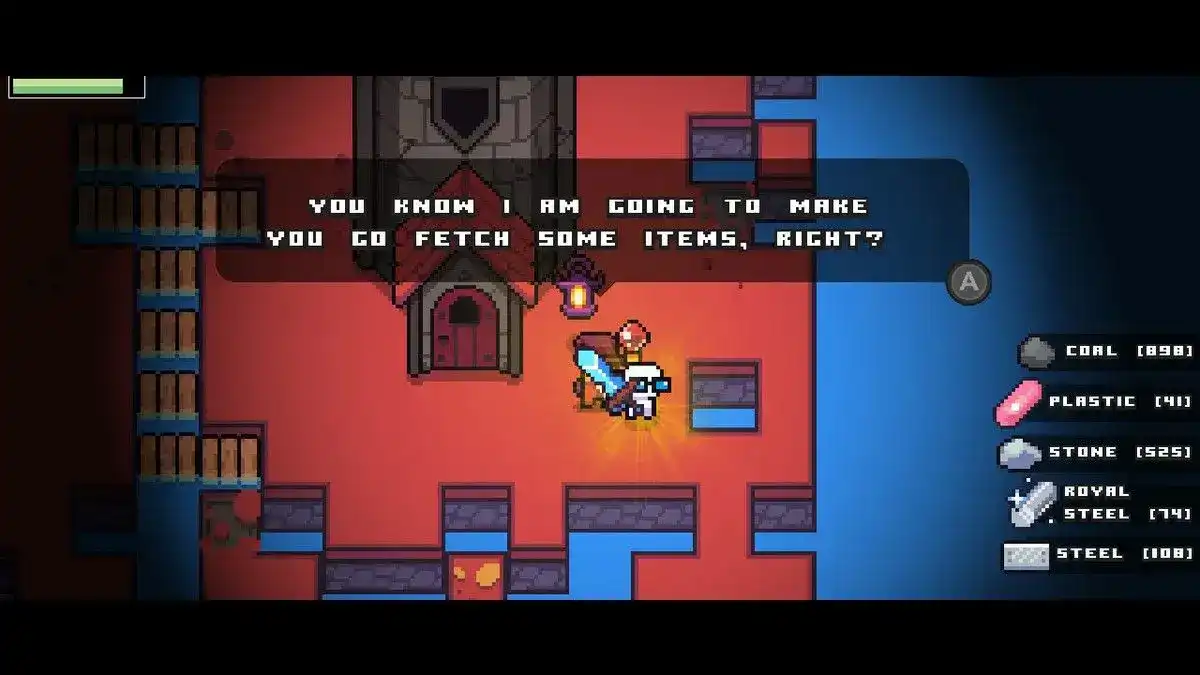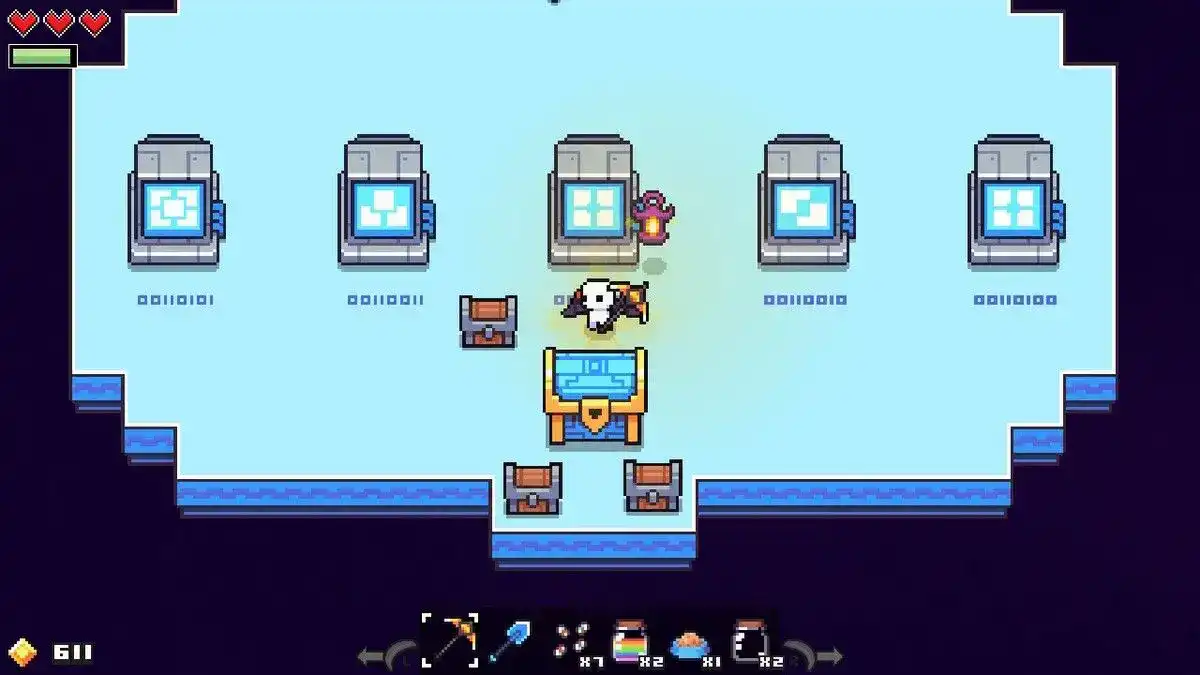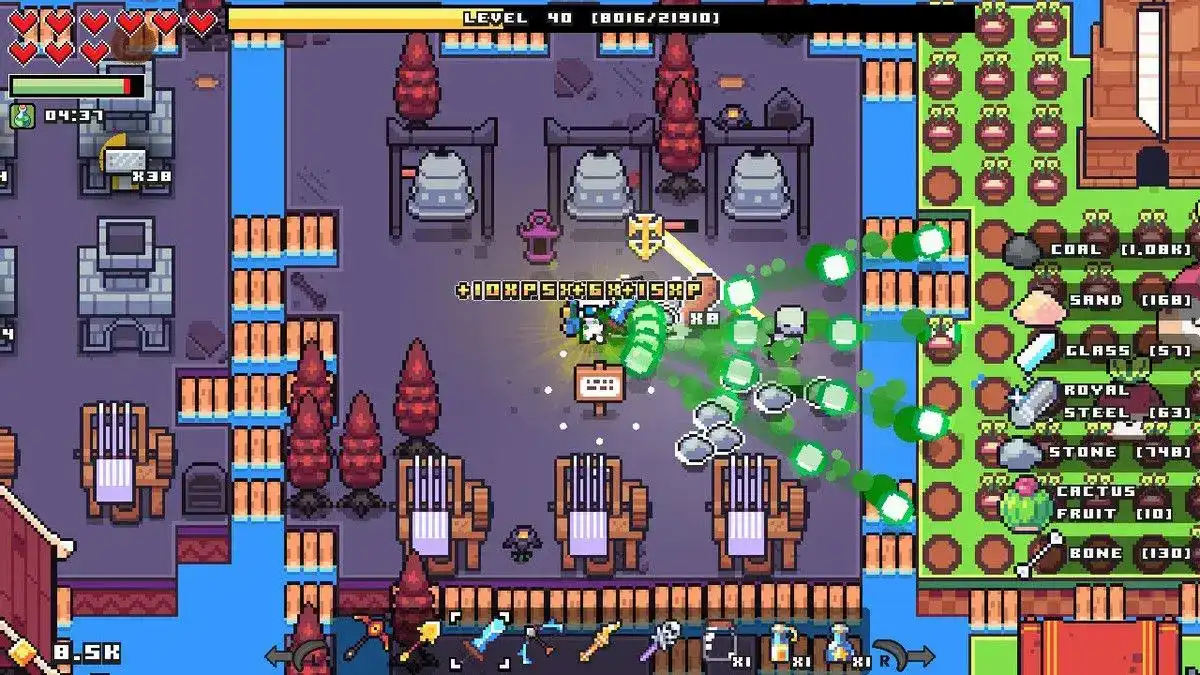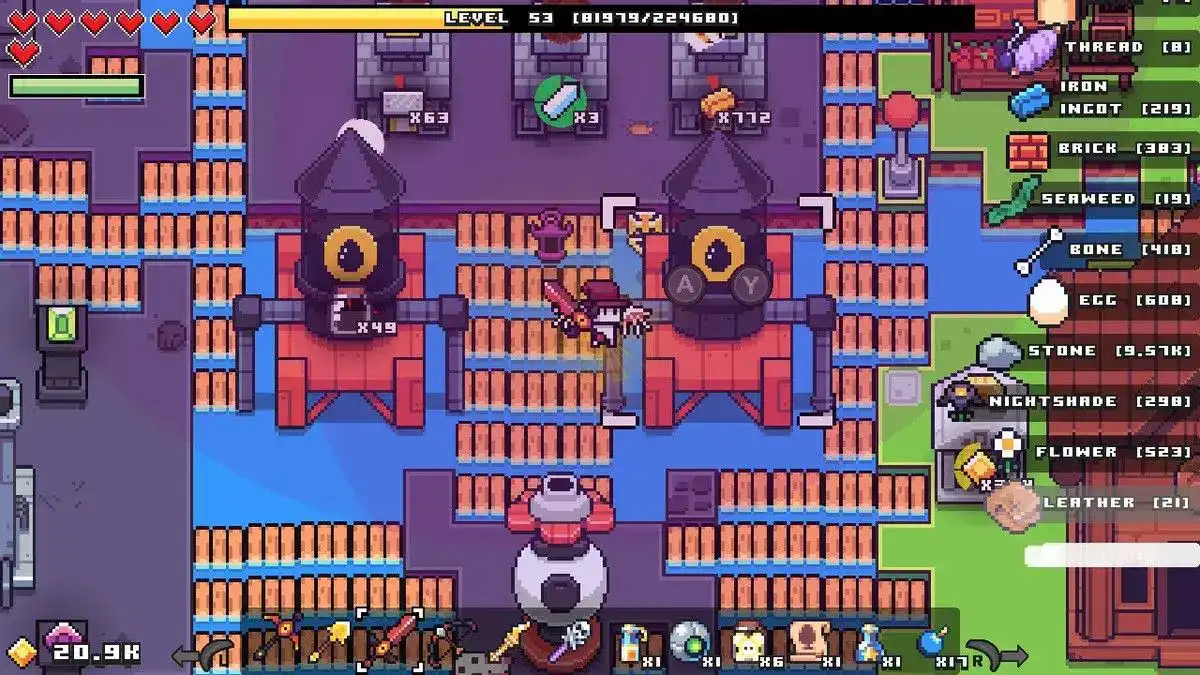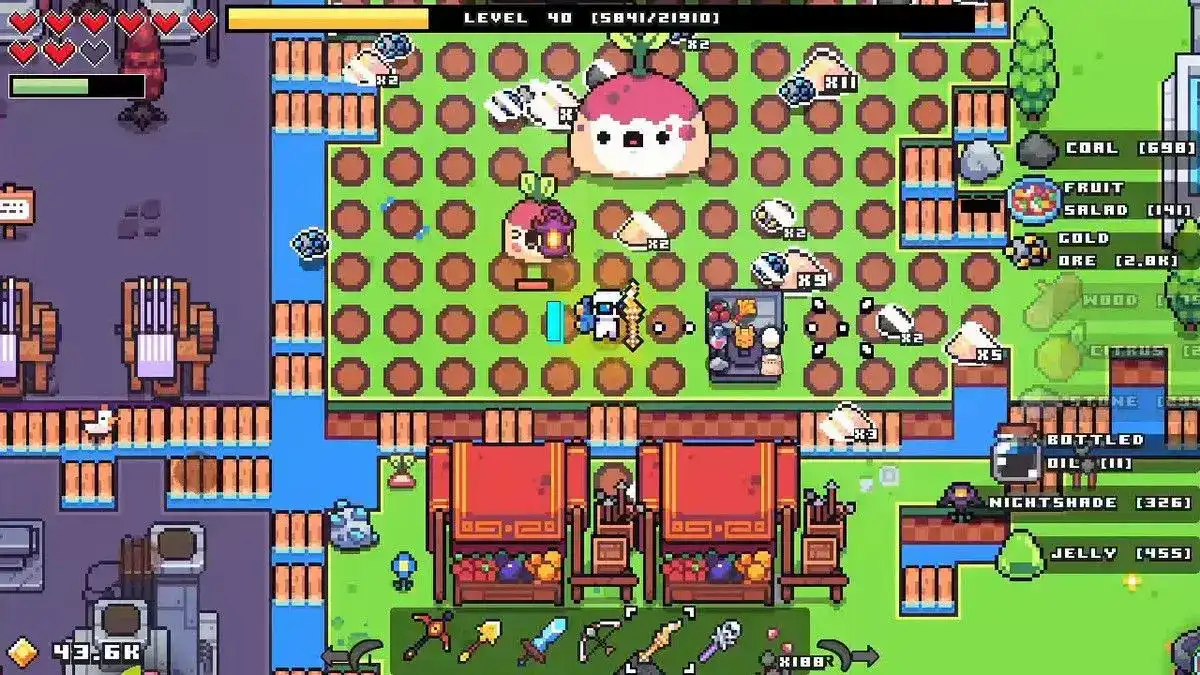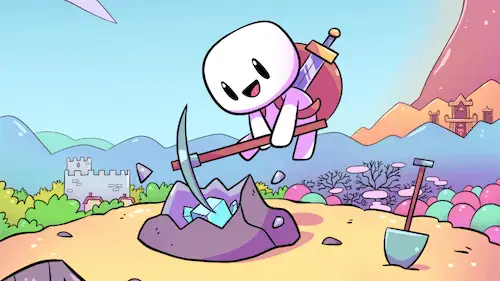Do you have a love-hate relationship with the concept of grinding in games? Or maybe just hate? Yeah, me too.
You'd think then that Forager, developed by HopFrog, wouldn't be on my favorites list, yet it holds a place at the top. Because of the game mechanics, progression, and expansion system in Forager, what could be considered "grinding" is actually extremely enjoyable crafting, foraging, and puzzle solving.
As a disclaimer, I played Forager on my Switch, and it doesn't have all the features of the PC version just yet, so I may miss small things here and there.
Update: Amazing timing — the console updates came out today! Read about why Forager is awesome, and then pick up a console copy!
Foraging (and Exploding and Fighting)
You begin on a small island with nothing but a pickaxe, which you use to gather materials. You take ten seconds to mine through a tree, another five to mine some minerals from a rock, and two seconds to gather cherries that you eat for more energy to keep going.
As resources repopulate, you do it all again. Eventually, you're able to build furnaces and forges, and you begin crafting items to improve your land, enable more exploration, and survive.
Fast forward ten hours — you're exploding all those trees and rocks in a mere half second, fighting skeletons and demons, milking cows and planting beets, puzzling your way through dungeons to face a boss, and changing outfits in your new treehouse.
The introduction was soft and slow, but it was set up (and sped up) at an exponential pace. I was immediately hooked into working towards the next item as there was a clear progression system from the very beginning.
Forager very closely followed the "show, don't tell" principle that I love. Nothing required a tutorial because the methods of progression were intuitive. Plus, they were linearly shown through the lists of furnaces, forges, and buildings as well as skill trees and land expansion possibilities.
Exploitation, Expansion, and Exploration
Now, here's how the gameplay and my discovery of Forager's world went.
1. To unlock more adventure, buy more land.
Though you start off on one small, simple island, Forager is actually made up of a huge grid of land pieces grouped by biomes, where resources specific to the biomes pop up almost as fast as you can harvest them.
To access new lands, you'll have to pay a price. Slowly but surely, your map expands as you connect all the pieces into one larger landmass with bridges or pixels of land. However, each piece of land comes with more than just resources for selling and crafting.
The first time I bought land, I discovered that there was a fairy fountain. The second time, there were sentient giant beets who loved me. Coming to the realization that each piece of land had its own secret, new adventures, and new items in store, I was only more enticed to progress.
This was one of the most unique ways of pushing progression in a game I've played, as most games only incentivize progress through becoming more powerful. In Forager, I felt most motivated to expand when I thought of more adventure and game content rather than more power (though the power gained was always an extra nice bonus).
Eventually, the map evolves, piece by piece, into a chaos of trees and rocks popping up all over the place, along with skeletons, demons, puzzles, and dungeons.
Fortunately, you'll have more than enough equipment to handle it all by the time you can afford to buy the land. In this way, the game is very cleverly designed as it sets the pacing of your progression just right so that you always feel prepared enough to take on an expansion, but at the same time will still feel challenged by the next surprise you find.
2. To clear each piece of land, complete quests, enter dungeons, forage, and craft.
As mentioned, each piece of land has its own theme (plains, desert, graveyard, frost, etc.) and its own secret, whether that's an ambiguous puzzle, a quirky NPC in need of help, or a dungeon with a powerful weapon but an equally powerful boss awaiting you.
You don't necessarily have to do anything with the NPC quests, puzzles, or dungeons if that's not your thing. In fact, you could farm beets for the rest of your Forager life, but the challenges of each new area were my favorite parts of the game and core to my experience.
I was pleasantly surprised that each dungeon was so fleshed out with their own themes and bosses — together, they could have been their own small game, a mini-Moonlighter or Zelda.
As for NPCs, none of their requests required too much work and seemed as if they only served to nudge players to explore new lands if they haven't already or try their hand at gathering different types of materials.
When it came to the puzzles, however, I found those much more challenging because of how ambiguous some were and sometimes had to wiki the solutions. However, if you finished them, each completed puzzle led to a large chest of treasure.
3. To increase efficiency learn, build, and buy.
Like I mentioned before, the grinding for progression didn't actually feel like grinding, and most of the time it wasn't. Nearly nothing was repetitive because there were constantly new and better ways to gather materials, and there was constantly a new skill to be upgraded because every little thing you do in Forager grants you experience.
These new skills then unlocked new structures that allow you to craft new items. Some of these structures, like mining rods, ballistas, and banks, also led to automation of many grinding pain points in the game, such as gathering heavily-used resources, money generation, fighting mobs, and even item pickup.
Whereas in most games you start to plateau around mid to end game, Forager made you feel like you were continuously getting exponentially more powerful even if you had to put in more resources to get to the next phase of progression.
One hour I was picking away at a rock, the next I was crafting bombs to explode 20 of them at once, and the next my pickaxe itself caused explosions. By the end of the game, I had mining rods and lasers mining over 100 rocks a minute and ballistas killing every skeleton and demon before I even got there to pick up their remains.
However, just because a portion of things became automated, and I did have to wait a real amount of time for certain items to be crafted, doesn't mean I could treat it like an idle game even though on the (very shallow) surface it appears similar. There was always something else to do and new land to roam.
The Cycle Continues
The last three steps are repeated for a good 15 hours or more, and it remains hard to put down throughout each hour, considering the constant advancements and gratification provided in the adventure.
No matter what state your world is in, there is always something to do and something new to discover or create or solve — and I mean literally always every second. There's also no real stopping point as you can keep filling up your land with various structures and become more and more powerful and rich.
However, you do eventually run out of things to do and goals to attain towards the end of the game, and all the power you gained and continue to gain becomes a bit meaningless. Once some of the updates, like a new biome, polished combat, and farming enhancements from the PC reach the Switch, I'm sure some of the end-game problems will be fixed, and I'll no doubt put in another 20 hours.
Update: Like I mentioned earlier the updates are out today, and I'm super excited to play again!
Because Forager is so open-ended, with so much freedom, content, and ability to suit all play styles, the sky is truly the limit.
Treat it as a mini-Stardew Valley and farm, harvest, and play with chickens all day. Or treat it as a mini-Zelda and dungeon crawl and fight monsters all day. You can even make a mini-Animal Crossing out of it and spend hours planning building placements, clearing land, and planning infrastructure (trust me, this is a real thing, and I've done it).
Only you determine how and when you want to progress, how powerful you can become, which weapon types you want to progress, the skills you want to focus on, and even your map and world.
I have never been more obsessed with a game for over a week straight, nor been so unable to put down a game because I'm usually too busy to binge, but this was an exception.
Forager manages to be relaxing and understandable while the map is chaotic, extremely open-ended and flexible while also straightforward. The progression is intuitive and perfectly paced, promising exponential growth, adventure, and fun.
Need a new obsession? Pick up Forager, play Forager, wait for the Tetris effect to hit, and dream about Forager.
